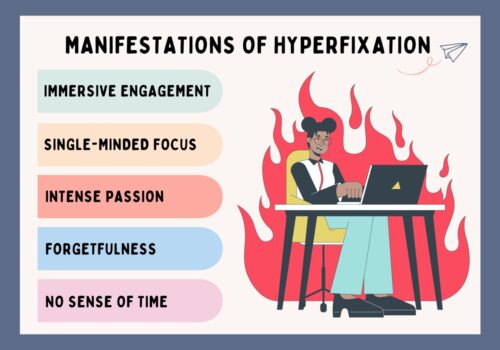The fear of failure is a common and natural human emotion that can significantly impact our lives and decisions. That nagging voice tells us that we’re not good enough or that we’ll never succeed. Fear can prevent us from taking risks and pursuing our goals, preventing us from reaching our full potential. Only by understanding the nature of fear, what makes us fearful, and why we succumb to it can we overcome it. We can become more efficient, successful, and happier through effective strategies and ways to conquer fear.
Understanding the Fear of Failure
Fear of failure, or atychiphobia is an unwarranted feeling of overwhelming dread that manifests itself when undertaking a project or pursuing life’s goals. People afflicted with it experience an impending certainty of failure in everything, even without obstacles. In such situations, emotional insecurity is the obstacle that causes one to fear the possibility of making mistakes, disappointing others, or falling short of expectations. While a common fear of failure can be healthy enough to motivate one to work more efficiently, a more chronic fear can paralyze a person to the point of anxiety and isolation.
Signs You’re Experiencing the Fear of Failure
Here are some common signs you’re experiencing an overwhelming fear of failure.
- Hopelessness and worrying
- Constant worry about the future
- Worrying what others will think if you fail
- Chronic procrastination
- Constantly distracted by irrelevant things
- Avoiding target and goal-oriented tasks
- Avoiding seniors and colleagues associated with projects
- Physical fatigue, headaches, and joint pains
- Decreased resilience
- Emotional insecurity and instability
Causes of the Fear of Failure
To overcome the fear of failure, it is necessary to understand its underlying causes, whether from past trauma or a self-imposed obsession to succeed. By acknowledging these factors, individuals can begin to address and challenge their fears.
- Perfectionism: Perfectionists may perceive any mistake or failure as a personal flaw, leading to heightened anxiety and avoidance of situations where failure is possible.
- Genetic and Biological Issues: If a parent or close relative has experienced a fear phobia, chances are a child will experience the same anxiety, carrying it with them into adult life.
- Past Experiences: Negative experiences like childhood trauma, abuse, academic failures, and professional disappointments can instill a deep-seated fear of repeating past failures or facing similar outcomes in the future.
- Societal Pressures: Whether it’s pressure from family, peers, or cultural norms, the fear of not living up to social expectations can be overwhelming and paralyzing.
- Self-Doubt: Low self-esteem and self-doubt can manifest into a fear of failure, leading individuals to question their abilities and worthiness.
- Fear of Judgment: The fear of being judged or ridiculed by others can significantly contribute to the fear of failure, preventing people from pursuing their goals or expressing themselves.
- Lack of Control: Feeling powerless when there is no certainty to risk-taking.
- Unrealistic Expectations: Unrealistic or overly ambitious goals can overwhelm people into succumbing to pressure and fearing the inevitable disappointment of failure.
How The Fear of Failure Might Be Impacting You
Fearing that you might fail becomes evident in your behaviour and actions. Atychiphobia can make you dysfunctional in your career or business, and you may begin to avoid doing things that involve a risk or challenge. Some ways fear phobia can affect you are:
You avoid trying new things- You begin avoiding things that help you progress just because of an element of risk. This could filter into your social life, preferring never to choose a new restaurant or vacation destination, sticking to old choices just because you think something might go wrong.
You’re afraid of change- Despite deserving better, you prefer the same job you’re used to even though it might not pay you what you’re worth. You’re afraid of change, even if it’s to live your dreams.
You fall apart when things go wrong- You begin to panic and worry at the slightest hint of something going wrong. That is because you feel like a failure, thinking every situation will be a disaster.
You judge people based on their success or failure- You are judgmental of yourself and others based on their achievements and failures. There is nothing in between, and neither does the effort mean anything to you.
You make excuses- You make excuses never to change your job for something better or start a business. It’s either no finance, poor health, no time, or perceived obstacles that are bound to manifest when you get going.
10 Ways to Overcome the Fear of Failure
Following these ten ways to overcome the fear of failure will embark you on a journey of self-discovery and improve your self-confidence, giving you more purpose and satisfaction in life.
1. Embrace a Growth Mindset
Adopt a growth mindset instead of viewing failures as setbacks. Learn to perceive failures as lessons and growth opportunities instead. Failure is a natural phenomenon en route to success; it is only when we give up that we indeed fail, not when we pick ourselves up from failure and move forward.
2. Identify Your Fears
Understanding and identifying the reasons for your phobia can give you insights on how to face them. Understanding self-sabotaging behavior helps you make positive behavioral changes that help you succeed.
3. Set Realistic Goals and Eliminate What Doesn’t Work
Set realistic and achievable goals that do not invite a risk of failure. Break down larger projects into smaller, manageable tasks to gain more control. While working, build on actions that work well and eliminate those that don’t. Instead of focusing on how to perfect things, focus on your progress.
4. Create a Backup Contingency Plan
Every task should have a plan B. Use your fear and anxiety to analyze every aspect of what might go wrong and create a contingency plan to counteract the possible problems. Covering every likely worst-case scenario will keep you prepared and give you more self-confidence that the result is what matters, despite hurdles along the way.
5. Practice Self-Compassion
Be kind to yourself, especially when facing challenges or setbacks. Remember that everyone experiences failure at some point, and it does not define your worth or potential. Rather than indulge in ruminating thoughts and consequences, focus on your current plan of action.
6. Take Calculated Risks
Risk-taking is a part of personal and professional growth. Instead of letting the fear of failure hold you back, take calculated risks and step out of your comfort zone. Assess the potential outcomes, weigh the pros and cons, and trust your ability to navigate challenges.
7. Take Action
Fear is a natural response to challenges with uncertain outcomes. However, it should not control you. Push yourself to take small steps toward your goals, even if it initially feels uncomfortable. You’ll build courage and resilience to face future challenges with each action.
8. Practice Body and Mind Relaxation
All phobias are a kind of anxiety disorder that needs techniques to destress the tension. Practice relaxation techniques like mindfulness meditation, progressive muscle relaxation or deep breathing to induce a sense of calm. Ensure you eat a healthy diet and get adequate sleep to fortify your body to take on the emotional challenges in life.
9. Focus on What You Can Control
When taking on a project or a task, evaluate your situation and focus on what can be controlled. Let go of things that are beyond your control. You can adopt more vigorous efforts for a better outcome by focusing on things with more say or influence. You will feel a sense of empowerment, not guilt, over failed outcomes whose processes you weren’t responsible for.
10. Seek Feedback and Support
Be bold and ask for feedback and support from mentors, peers, or loved ones. Constructive feedback can provide valuable insights and help you identify areas for improvement. Surround yourself with people who believe in you and encourage you to overcome challenges.
The fear of failure is a common obstacle many face on their journey toward success. But it doesn’t need to be something that prevents you from fulfilling your career goals and dreams. Adopting a growth mindset and following all the advice outlined here will help you discover newfound confidence and resilience to conquer any challenge that comes your way.
















